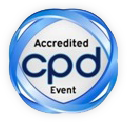
Caroline Ajonina
Hamburg University of Technology (TUHH), Germany
Title: Application of the Loop mediated isothermal amplification for the detection of Entamoeba histolytica, Cryptosporidium spp. and Giardia duodenalis in freshwater bivalvia
Biography
Biography: Caroline Ajonina
Abstract
A study is on-going to investigate the epidemiology of three major protozoan parasites of public health significance: Entamoeba histolytica, Giardia duodenalis, and Cryptosporidium spp. It has been shown that surface waters are frequently contaminated by effluents from wastewater treatment plants, livestock farming and straying animals. Due to the ability of bivalves to recover and concentrate environmentally derived human pathogens, they can therefore be used for the estimation of environmental hygiene. In this study prior evaluated loop-mediated isothermal amplification (LAMP) assays are used for highly specific, efficient, simple and rapid detection of these protozoans in mussels which are collected in the catchment area of the Lower Rhine downstream of wastewater discharges. With sets of six primers each to target the Giardia EF1A gene, the Cryptosporidium SAM-1 gene and the E. histolytica hemolysin gene HLY6 DNA fragments are amplified by LAMP. The amplification of DNA in the LAMP mixture is monitored either directly for the presence of turbidity and colorimetric change under ambient light and confirmed by agarose gel electrophoresis. In comparison to conventional PCR, LAMP assay is beneficial and therefore most convinient for the detection of these parasites in the aquatic environment including tissues from filter feeding invertebrates. Additionally we could demonstrate that mussels are suitable biomonitors for statutory neglected hygiene parameters like waterborne protozoan parasites.

